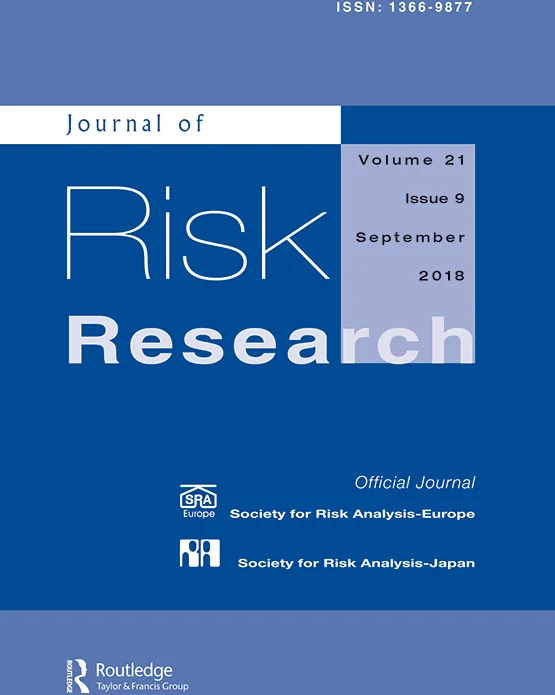2016年期间的风险感知、影响和信息规避 美国总统选举
IF 2.4
4区 管理学
Q1 SOCIAL SCIENCES, INTERDISCIPLINARY
引用次数: 2
摘要
摘要在总统选举周期中,选民使用信息来缓解候选人和选举过程的不确定性。因此,选举为研究与风险相关的信息行为提供了一个有趣(而且有些新颖)的背景。在这里,我们认为,个人会回避某些信息,这取决于他们感知到的风险程度以及他们体验到的风险相关影响的程度。基于2016年前一个月收集的全国调查数据 美国总统选举(N = 512),我们发现风险感知通过对不同类型风险的情感反应影响信息回避。具体而言,金融和政治风险通过对风险的负面情感反应影响规避,而政策风险通过积极和消极情感反应影响回避。因此,情感反应的中介作用因感知风险的类型而异。本文章由计算机程序翻译,如有差异,请以英文原文为准。
Risk perception, affect, and information avoidance during the 2016 U.S. Presidential election
Abstract During a presidential election cycle, voters consume information to alleviate uncertainty about the candidates and the process. As a result, elections offer an interesting (and somewhat novel) context for studying risk-related information behaviors. Here we argue that individuals avoid certain information, depending on the amount of risk they perceive and to what extent they experience risk-related affect. Based on national survey data collected one month prior to the 2016 U.S. presidential election (N = 512), we found that risk perception influenced information avoidance through affective responses to the different types of risks. Specifically, financial and political risk influenced avoidance through negative affective response to risk, while policy risk influenced avoidance through both positive and negative affective response. Thus, the mediation of affective responses varies by the type of perceived risks.
求助全文
通过发布文献求助,成功后即可免费获取论文全文。
去求助
来源期刊

Journal of Risk Research
SOCIAL SCIENCES, INTERDISCIPLINARY-
CiteScore
12.20
自引率
5.90%
发文量
44
期刊介绍:
The Journal of Risk Research is an international journal that publishes peer-reviewed theoretical and empirical research articles within the risk field from the areas of social, physical and health sciences and engineering, as well as articles related to decision making, regulation and policy issues in all disciplines. Articles will be published in English. The main aims of the Journal of Risk Research are to stimulate intellectual debate, to promote better risk management practices and to contribute to the development of risk management methodologies. Journal of Risk Research is the official journal of the Society for Risk Analysis Europe and the Society for Risk Analysis Japan.
 求助内容:
求助内容: 应助结果提醒方式:
应助结果提醒方式:


